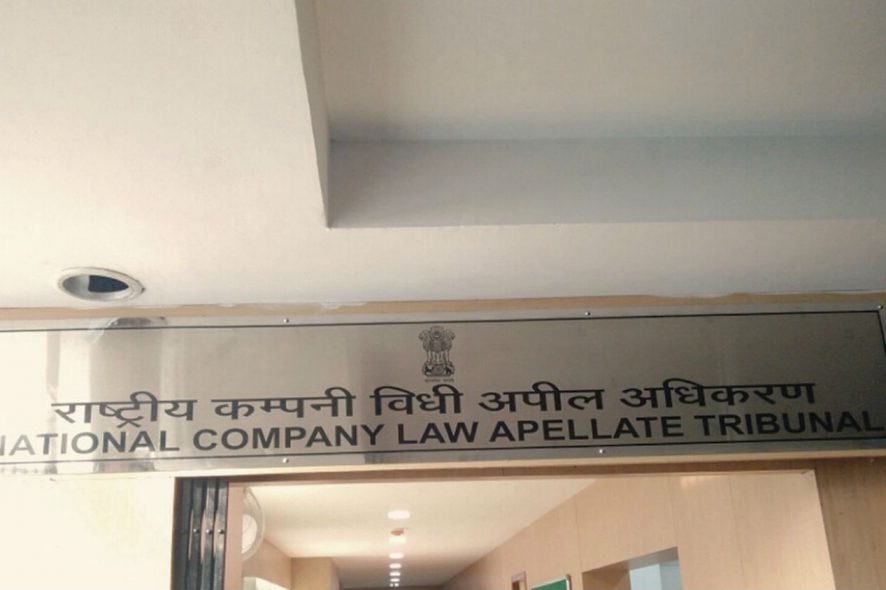National Company Law Appellate Tribunal (NCLAT): The Bench of Justice Bansi Lal Bhat (Acting Chairperson) and Justice Anant Bijay Sing (Judicial Member) and Kanthi Narahari (Technical Member) set aside the Adjudicating Authorities decision while establishing whether a pre-existing dispute existed between the parties.
The instant appeal was filed against the order of the National Company Law Tribunal, New Delhi wherein the application filed under Section 9 of the Insolvency and Bankruptcy Code, 2016 by the respondent was admitted.
Pre-Existing Dispute
Aggrieved by the above, suspended director of the Corporate Debtor filed the present appeal challenging the admission and initiation of Corporate Insolvency Resolution Process against the Corporate debtor for the reason that there is a pre-existing dispute between the Corporate Debtor and the Operational Creditor.
Brief facts
Corporate Debtor invited tender in carrying out electrical works and respondent/Operational Creditor was assigned the same. In terms of the agreement and Letter of Intent, the payment terms were specifically incorporated therein.
In terms of LOI, a specific mention the time of completion is the essence of the contract and milestones were accordingly incorporated. The work was to be completed within 120 days. However, the work was delayed and the same was communicated by the Operational Creditor.
Further, it was submitted that the Operational Creditor has not completed the work and the Corporate Debtor time and again reminded Operational Creditor to complete the work by pointing out the defects.
Issue for Consideration
Whether there is an existence of dispute prior to the issuance of Demand Notice dated 11-04-2019 or not?
Bench noted that various email were exchanged between the parties. Respondent addressed to the appellant whereby it had been stated that the project was delayed much beyond the original schedule leading to enhanced overheads and stated that they needed funds to source materials with respect to work progress.
Deficiency in Service
Tribunal opined that the Adjudicating Authority instead of taking technical objection that the email dated 29-04-2019 may not be a response to the demand notice issued by respondent, however, the contents raised by the appellant should have been taken into consideration for the purpose of deciding the issue to elucidate any pre-existing dispute keeping in view of the trail of exchange of e-mails regarding deficiency in service.
Letters/e-mails of respondent dated 29-12-2018:
“Dear Sir,
We are handing over Electrical Works, Documents Details at Triumph Resort 336/1A, village Calwaddo, Benaulim, Goa- 403716.”
From the perusal of correspondences between the Appellant and Respondent, Appellant/Corporate Debtor submitted that the Respondent did not complete the project in time thereby the Project got delayed thereby they suffered losses. On the other side, the stand of Respondent/Operational Creditor that they completed the project and handed over to the Appellant/Corporate Debtor, however, Appellant/Corporate Debtor failed to pay bills even after completion of the project.
Bench stated that it is unequivocal that there exists a dispute between the parties prior to the issuance of Demand Notice dated 11-04-2019.
Adjudicating Authority instead of taking a technical objection that the Appellant/Corporate Debtor did not respond to the Demand Notice issued by the Respondent/Operational Creditor within the statutory period of 10 days as contemplated under Section 8(2) of IBC, should have analysed the documents placed before it, before taking such objection.
Tribunal observed that it is bound by the Supreme Court decision in, Mobilox Innovations (P) Ltd. v. Kirusa Software (P) Ltd., (2018) 1 SCC 353, wherein it was held that:
“…Within a period of 10 days of the receipt of such demand notice or copy of invoice, the corporate debtor must bring to the notice of the operational creditor the existence of a dispute and/or the record of the pendency of a suit or arbitration proceeding filed before the receipt of such notice or invoice in relation to such dispute [Section 8(2)(a)]. What is important is that the existence of the dispute and/or the suit or arbitration proceeding must be pre-existing i.e. it must exist before the receipt of the demand notice or invoice, as the case may be.”
Decision
Bench held that in view of the email/letters there existed a dispute prior to the Demand Notice.
Exchange of e-mails/correspondences, as referred above, clearly establishes that there is a pre-existing dispute between the parties regarding completion of the work and the Appellant/Corporate Debtor continuously made complaints regarding non-completion of work and deficiency in services, thereby loss caused to the Appellant/Corporate Debtor.
Hence, the Adjudicating Authority ought not to have admitted the application under Section 9 of IBC filed by the respondent.
Bench reiterated that,
Code is a beneficial legislation intended to put the Corporate Debtor on its feet and it s not a mere money recovery legislation for the Creditors.
In view of the above discussion, initiation of Corporate Insolvency Resolution Process is quashed and set aside.
While remitting back the matter to Adjudicating Authority, the tribunal directed Interim Resolution Professional/ Resolution Professional will hand over the assets and records to the Corporate Debtor/Promotor/Board of Director. [Umesh Saraf v. Tech India Engineers (P) Ltd., 2020 SCC OnLine NCLAT 677, decided on 19-10-2020]






